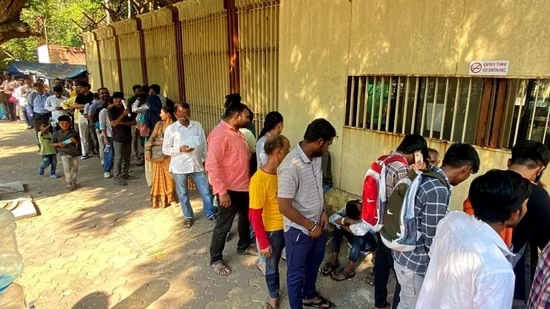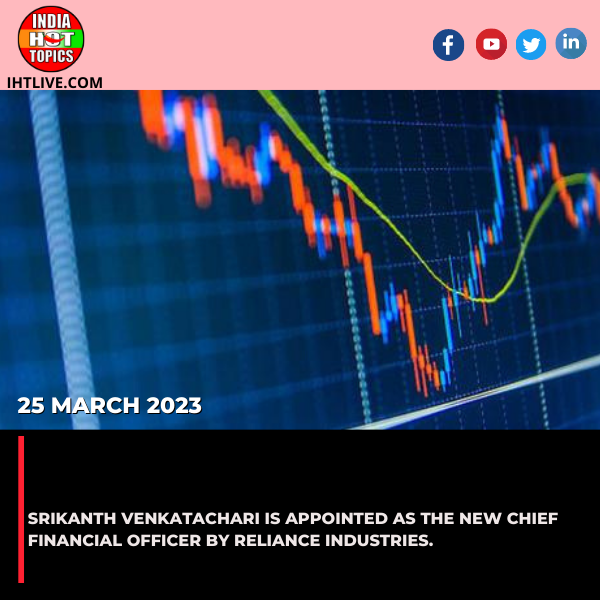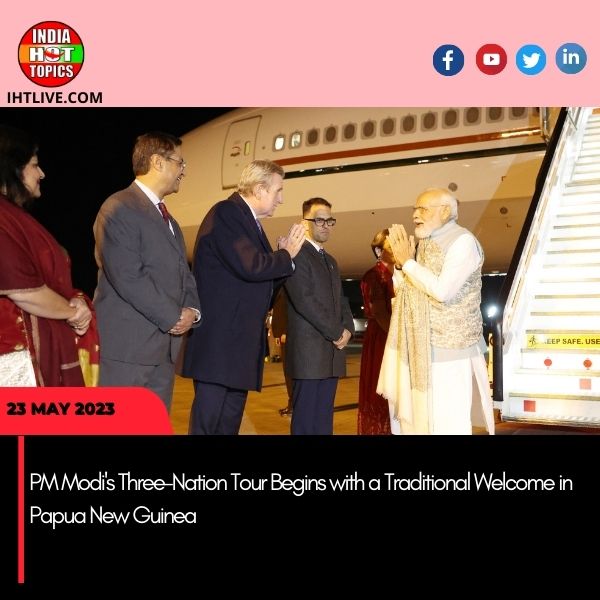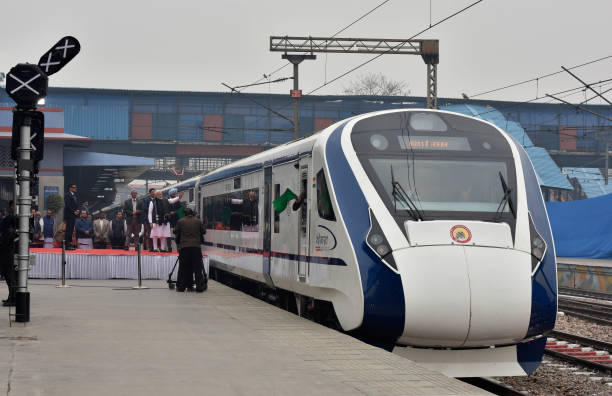India
The impact of GST on India

In a bid to streamline India’s complex tax structure and create a unified market, the Goods and Services Tax (GST) was introduced on July 1, 2017. Today, as we mark the sixth anniversary of this landmark tax reform, it is imperative to evaluate the impact of GST on India’s economy and society.
The GST implementation aimed to bring about transparency, simplify tax compliance, and eliminate cascading taxes, ultimately boosting economic growth. Let’s delve into the key areas influenced by GST:
Economic Growth:
The introduction of GST has helped in consolidating multiple indirect taxes into one, eliminating tax barriers between states and creating a common national market. This has facilitated ease of doing business, reduced logistics costs, and improved supply chain efficiency. Consequently, India’s GDP growth rate has witnessed a positive trajectory, bolstered by increased tax compliance and reduced tax evasion.
Tax Revenue:
GST has brought about a significant improvement in tax collections. With a wider tax base and increased compliance, the government has experienced a substantial rise in tax revenues. This has enabled the government to undertake various developmental initiatives, such as infrastructure projects, social welfare programs, and investments in healthcare and education.
Formalization of the Economy:
GST has played a crucial role in formalizing the previously informal sector of the economy. With GST’s implementation, businesses are required to maintain proper records, file returns, and comply with tax regulations. This shift towards formalization has increased transparency, facilitated credit availability, and reduced the prevalence of black money.
Tax Compliance:
GST has introduced a technology-driven tax regime with the implementation of the Goods and Services Tax Network (GSTN). The online platform has simplified the process of tax registration, filing returns, and claiming input tax credits. Although initial challenges were faced during the transition, the GSTN has steadily improved, making tax compliance easier for businesses.
Consumer Impact:
The impact of GST on consumers has been mixed. While some sectors have witnessed reduced tax burdens, others have experienced an increase in prices due to the standardization of tax rates. However, over time, the introduction of anti-profiteering measures and revisions to tax slabs have addressed some concerns and aimed to protect consumer interests.
Challenges and Reforms:
Despite the overall positive impact, the GST regime has faced challenges such as tax evasion, frequent revisions in tax rates, and compliance issues. To address these challenges, the government has continuously worked towards streamlining the tax structure, simplifying procedures, and improving the GSTN platform. Reforms such as the introduction of the e-invoicing system and quarterly filing for small taxpayers have aimed to ease compliance burdens.
As India celebrates the sixth anniversary of GST, it is crucial to recognize the progress made in transforming the tax landscape. The GST regime has significantly contributed to the growth of the Indian economy, increased tax compliance, and formalized the previously informal sector. However, continuous efforts are necessary to address challenges, simplify procedures further, and ensure a more inclusive and equitable tax structure that benefits all stakeholders.
Overall, GST has been a vital step in India’s journey towards economic reform, with its long-term impact continuing to shape the nation’s growth and development.
General News Platform – https://ihtlive.com/
Entertainment News Platforms – anyflix.in
Construction Infrastructure and Mining News Platform – https://cimreviews.com/
Podcast Platforms – https://anyfm.in
India
Amit Shah will preside over a high-level Manipur meeting.

Monday night’s meeting to assess the security situation in Manipur will be facilitated by Union Home Minister Amit Shah. This is the first high-level gathering of its kind held by the central government since Prime Minister Narendra Modi’s National Democratic Alliance (NDA) was re-elected earlier this month.
Senior representatives from the federal government, state governments, including chief minister N Biren Singh, the army, and other security agencies are anticipated to attend the meeting at 4 p.m., according to people with knowledge of the development.
Manipur has seen fighting between the Kukis and Meiteis communities since May 3 of last year. The fighting has resulted in at least 225 deaths to far and the displacement of almost 50,000 people, the majority of whom are still living in relief shelters.
The previous few weeks have seen new acts of violence in the northeastern state, including the burning of a school facility close to Moreh and the discovery of the beheaded body of a missing individual.
In the Kangpokpi district last week, armed terrorists assaulted the vehicle of Manipur Chief Minister N Biren Singh’s enhanced security team, injuring a security officer and a civilian driver.
Dr. Mohan Bhagwat, the chief of the Rashtriya Swayamsevak Sangh (RSS), stated on June 10 that Manipur has been waiting for peace for a year and that this problem has to be given priority.
Bhagwat emphasised the importance of putting aside political hyperbole and concentrating on the issues confronting the country.
Dattatreya Hosabale, the general secretary of the RSS, called the current violence in Manipur “painful” and “worrisome.”
The Sangh, according to a statement, feels that the only way to solve any issue is “through mutual dialogue and expression of brotherhood in a peaceful atmosphere.”
In an attempt to mediate peace, Shah had earlier travelled to Manipur last month and convened nine talks with leaders of the Kuki and Meitei groups. Despite this, the violence has not decreased.
General News Platform – https://ihtlive.com/
Entertainment News Platforms – anyflix.in
Construction Infrastructure and Mining News Platform – https://cimreviews.com/
Podcast Platforms – https://anyfm.in/
India
Uttar Pradesh: PM Modi’s visit to the Kashi Vishwanath temple in Varanasi is well underway.

On Tuesday, Prime Minister Narendra Modi will travel to Varanasi, his home district in the Lok Sabha. This will be his first trip to the sacred city since taking office as the nation’s third prime minister.
At the historic Kashi Vishwanath temple, PM Modi is expected to engage with farmers and take part in Ganga Aarti.
What is currently known regarding Prime Minister Narendra Modi’s visit to Varanasi is as follows:
For 4.5 hours, Prime Minister Modi will be in Varanasi. At roughly 4 p.m., he will touch down at Babatpur’s Lal Bahadur Shastri International Airport.
Prior to releasing the 17th installment of the Samman Nidhi, which is intended to benefit 2,76,665 farmers in Kashi, PM Modi will attend a “Kisan Samelan.”
In order to commemorate the farmers in the area, PM Modi will meet with 21 of them at the Kisan Samelan and evaluate their products. BJP party officials are preparing for the visit.
The visit of Prime Minister Modi is a source of pride for the people of Varanasi, according to BJP president Dilip Patel. “We are all proud that Prime Minister Narendra Modi has taken the oath of office three times—once as the nation’s prime minister and once as a member of the Varanasi assembly.”
Following his meeting with the farmers, Prime Minister Modi is scheduled to attend the Ganga Aarti at Dashashwamedh Ghat at the Kashi Vishwanath temple.
Vishwa Bhushan Mishra, the CEO of the Kashi Vishwanath temple, stated in an interview that they have a process for the Prime Minister’s visit. PM Modi is anticipated to spend about twenty-five minutes inside the temple.
Ajay Rai, Modi’s previous opponent for the Varanasi seat, criticised him, claiming that Modi was displacing natives with Gujaratis by handing all employment to them. Regarding the purported dearth of factories and development in the city, he questioned Modi.
General News Platform – https://ihtlive.com/
Entertainment News Platforms – anyflix.in
Construction Infrastructure and Mining News Platform – https://cimreviews.com/
Podcast Platforms – https://anyfm.in/
India
Sunita Kejriwal is requested by the Delhi High Court to remove Arvind Kejriwal’s court footage from social media.

The wife of chief minister Arvind Kejriwal, Sunita Kejriwal, has been ordered by the Delhi High Court to remove a video of her husband speaking to a Delhi court from her social media accounts. The social media companies have also been ordered by the court to remove posts that contain links to the video.
In addition, the high court has sent notices to all parties involved in the PIL, which was filed by lawyer Vaibhav Singh, alleging that Kejriwal’s appearance before Delhi’s Rouse Avenue Court on March 28 violated the court’s regulations regarding video conferencing.
Among the five people requested to remove the social media posts is Sunita Kejriwal.
The court has set July 9 for the hearing.
On March 28, Arvind Kejriwal personally addressed Special Judge (PC Act) Kaveri Baweja after being brought before the court a second time after being arrested by the Enforcement Directorate in connection with the Delhi liquor policy case.
Sunita Kejriwal reposted the images after the audio and video recordings of the speech went viral on social media.
When films with comparable content are brought to their attention, the Delhi High Court ordered X, YouTube, Facebook, and Instagram to remove them.
The notice on the PIL filed by the Delhi-based attorney Vaibhav Singh was issued by a division bench made up of Justices Neena Bansal Krishna and Amit Sharma.
After he disregarded nine summonses from the Enforcement Directorate, Arvind Kejriwal was taken into custody on March 21 in relation to the excise policy fraud. Subsequently, the Delhi High Court affirmed the agency’s decision.
Later, Arvind Kejriwal petitioned the Supreme Court to overturn his arrest.
In order to enable Kejriwal to campaign for his Aam Aadmi Party during the Lok Sabha elections, the Supreme Court granted him temporary release in May for a period of 21 days.
On June 2, he turned himself in to the Tihar Jail officials per the Supreme Court’s directive.
The former bureaucrat Sunita Kejriwal had spent a great deal of time campaigning for the AAP during the Lok Sabha elections. But the party was unable to secure a single seat in the nation’s capital.
General News Platform – https://ihtlive.com/
Entertainment News Platforms – anyflix.in
Construction Infrastructure and Mining News Platform – https://cimreviews.com/
Podcast Platforms – https://anyfm.in/
-

 India8 months ago
India8 months agoThe afternoon briefing revealed that 97.26% of the ₹2000 notes were returned, and the Israeli Prime Minister committed to war goals.
-

 Business1 year ago
Business1 year agoSrikanth Venkatachari is appointed as the new chief financial officer by Reliance Industries.
-

 Entertainment1 year ago
Entertainment1 year agoNew Season 8 The Walking Dead trailer flashes forward in time
-

 India1 year ago
India1 year agoPM Modi’s Three-Nation Tour Begins with a Traditional Welcome in Papua New Guinea
-

 Fashion7 years ago
Fashion7 years agoThese ’90s fashion trends are making a comeback in 2017
-

 India Hot Topics12 months ago
India Hot Topics12 months agoCenter ‘busts’ 8 YouTube channels for distributing false information.
-

 Business7 years ago
Business7 years agoThe 9 worst mistakes you can ever make at work
-

 India1 year ago
India1 year ago3 Vande Bharat Trains, An E-way: MP’s Infra, Connectivity Projects on Fast Track ahead of Assembly Polls








